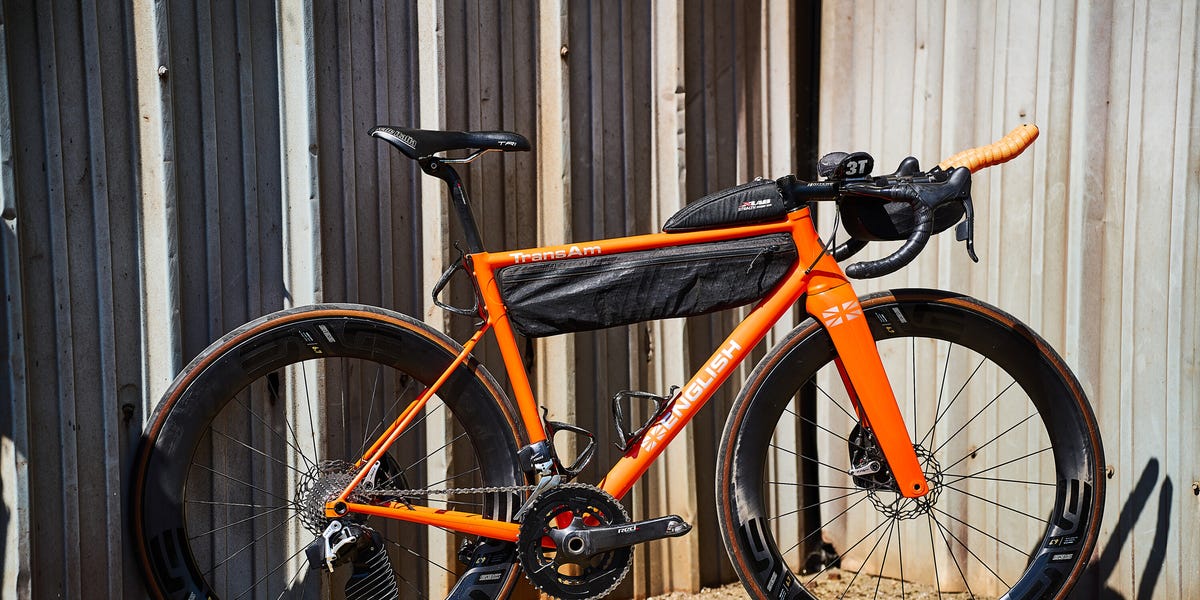This bright orange English TransAm isn’t new; it’s eight years old. Yet, in many ways, the TransAm fits right in with some endurance road bikes introduced recently by big-name brands or on the Instagram accounts of cycling influencers. And it demonstrates why small frame builders—and gatherings like the Made Show—are important to the lifeblood of bicycles, the development of new products, and cycling culture.
A lot has changed in bike technology in the eight years since Rob English built this bike to celebrate his fortieth birthday and race the 2017 TransAm route. However, if you substituted the bike’s steel frame for carbon, swapped the SRAM Red eTap AXS groupset for the current generation Red AXS, and changed its cable disc brakes for hydraulic models with internal cable routing, the TransAM would fit right in with modern road and endurance bikes.
English’s use of wireless shifting, disc brakes, wide tires, deep aero wheels, and integrated bags was viewed as innovative in 2017, and the bike received some press from cycling media and on blogs. Fast forward eight years, and most of these features are now embraced by every mainstream bicycle manufacturer and ridden by thousands of riders.
Some cyclists view hand-built bikes as pricey pieces of functional artwork. Others seek out craft builders to get a bike that better meets their fit needs or unique riding requirements. However, when I attend expos like the Made Show (or seek out small-scale frame builders’ bikes and events like the Sea Otter Classic), I keep my eyes open to cycling’s burgeoning tech and fringe categories ready to jump to the mainstream.
Strolling the aisles of Made Show today, I saw plenty of bikes by small builders with creative solutions to manufacturing problems and big ideas too weird for bicycle brands that sell hundreds of thousands of bikes per year. The running undercurrents of last year’s Made were tidy integration, 3D printing, and stunning paint jobs.
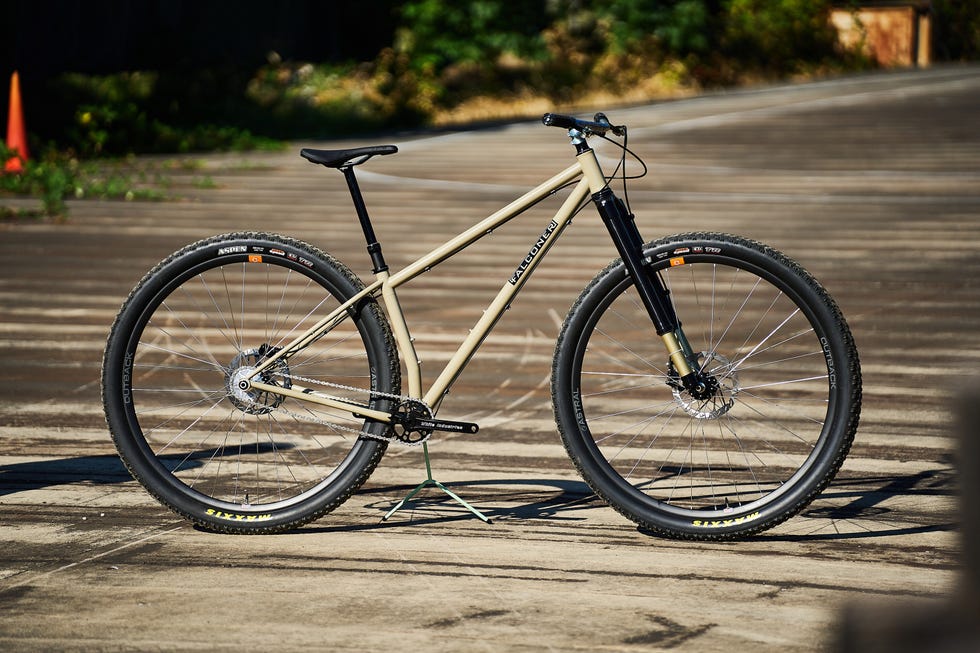 Trevor Raab
Trevor Raab
32-inch wheel bikes are big at this year’s Made Show.
While 2024’s Made Show innovation trends largely leaned toward the road and gravel segments, many of this year’s developments were in the fat tire realm. 32-inch wheel mountain bikes and boutique suspension frames were the themes that jumped out to me on my first day of exploring row after row of drool-worthy bikes.
Suspension bikes are not new to the hand-built bike world; every year, a small builder or two tries their hand at developing a full suspension frame. However, they rarely break out or see production of more than a handful of units. For every builder like Intense that went from a small-scale California builder to a global brand, dozens fade into obscurity.
However, even small builders that only made a few bikes or quickly faded away can have long-term impacts on the bikes we ride decades later. Today, mountain bikes with carbon fiber frames, 29-inch wheels, and 150mm travel are what many riders purchase to ride their local trails. If those trail riders want something cutting-edge, they might buy a bicycle with a high-pivot rear suspension and an inverted fork.
What if I told you that a mountain bike with all of those features was crafted by a builder almost 20 years ago?
Alex Morgan of BCD Racing built and raced this bike in the pro downhill field on a national level back in 2007. It would be another decade until 29-inch wheels and carbon fiber frames became commonplace in World Cup downhill races. And while BCD no longer builds bikes (Morgan still organizes mountain bike and gravel races in New Mexico), its ingenuity and forward thinking laid the groundwork for the mountain bikes we commonly ride today.
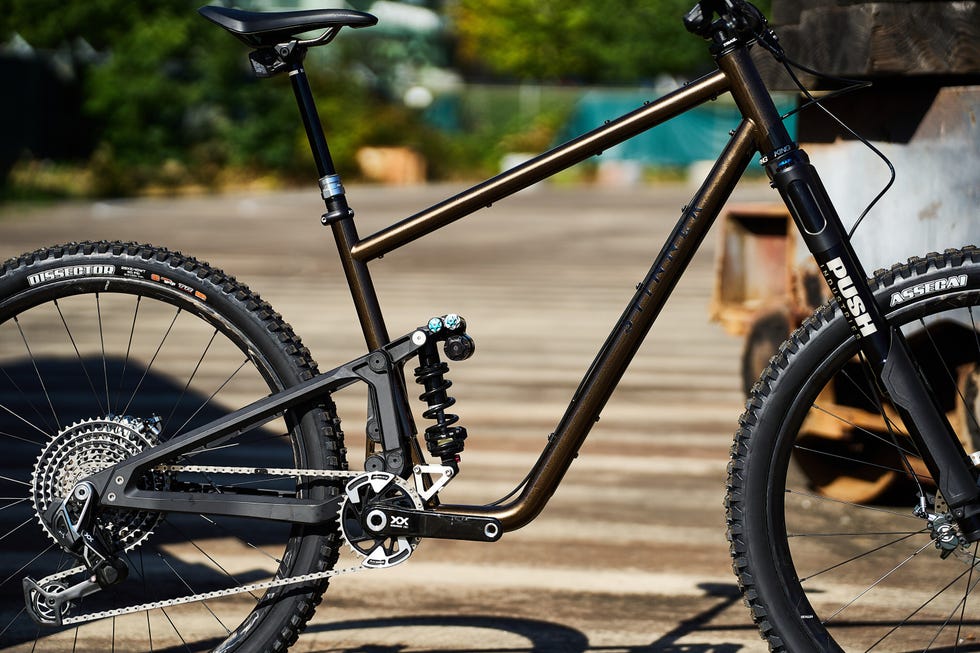
Trevor Raab
So, when I see the 32-inch wheel bikes and small-batch full suspension frames at this year’s edition of Made Show, my mind begins to dream about the bikes we will ride ten years from now. Will one of these bikes become the start of the next big thing in mountain biking?
Bikes like English’s TransAm and the BCD prototype twenty-niner might be one-offs, but they are visionary. Neither bike was intended to set trends years in the future: they were crafted by cyclists to solve a riding problem and get their builder to the finish line.
When you go to a handbuilt bike show like Made—or scroll through the photos online—enjoy the artisan framesets, beautiful paint jobs, and creative engineering solutions. However, also keep a keen eye out for the bicycles that seem a bit weird or outside the norm. The builders behind these unconventional bikes could very well be laying the first tracks for what you will be riding in the coming years.
Exclusive Video Programs
Master the Century
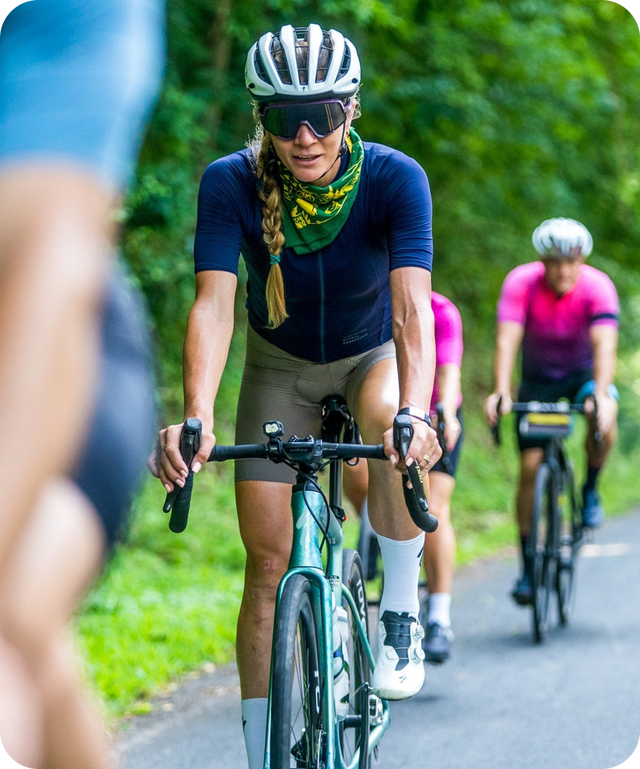
Watch as host Alison Tetrick takes you through everything you need to know to ride your first (or fastest) century. Along with other cycling experts, she explains how to find the best gear, build endurance, fuel your body during the ride, and much more.
Ride Strong at 50+
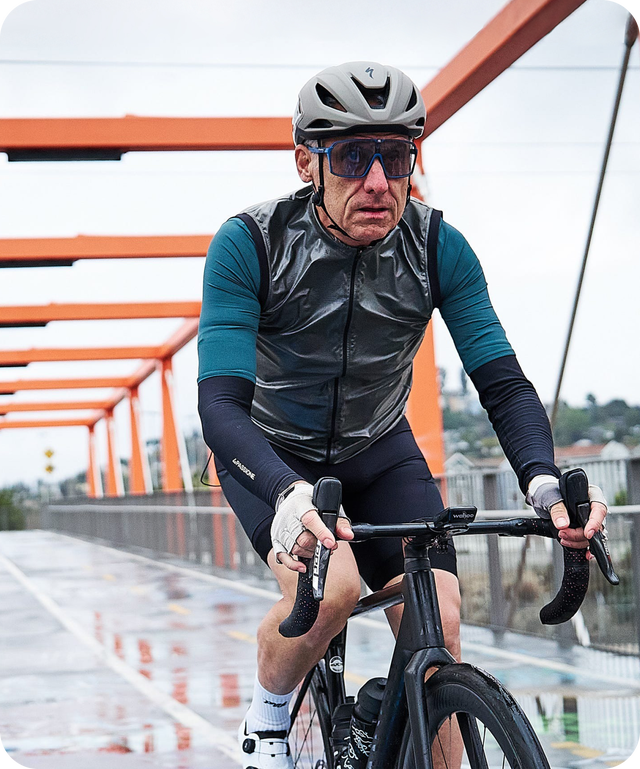
Cycling is the best way to stay fit as you age. With the help of host Peter Abraham and other experts, you’ll learn everything you need to get started and stay riding into your golden years, including choosing a bike, finding a plan, and optimizing recovery.
Perfect Your Bike Fit
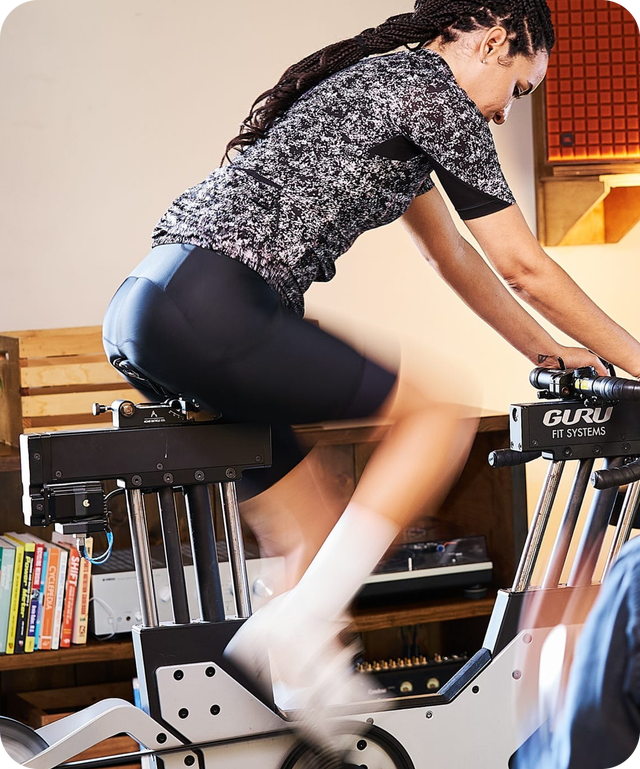
Whether you’re constantly feeling aches or you want to maximize your performance gains, you need the right bike fit. With this guide, host Jenna Foley and certified bike fitter Jonathan Blyer walk you through the process and offer up DIY tips.
As Deputy Editor, Tara Seplavy leads Bicycling’s product test team; after having previously led product development and sourcing for multiple bike brands, run World Championship winning mountain bike teams, wrenched at renowned bicycle shops in Brooklyn, raced everything from criteriums to downhill, and ridden bikes on six different continents (landing herself in hospital emergency rooms in four countries and counting). Based in Easton, Pennsylvania, Tara spends tons of time on the road and trail testing products. A familiar face at cyclocross races, crits, and bike parks in the Mid Atlantic and New England, on weekends she can often be found racing for the New York City-based CRCA/KruisCX team. When not riding a bike, or talking about them, Tara listens to a lot of ska, punk, and emo music, and consumes too much social media.

